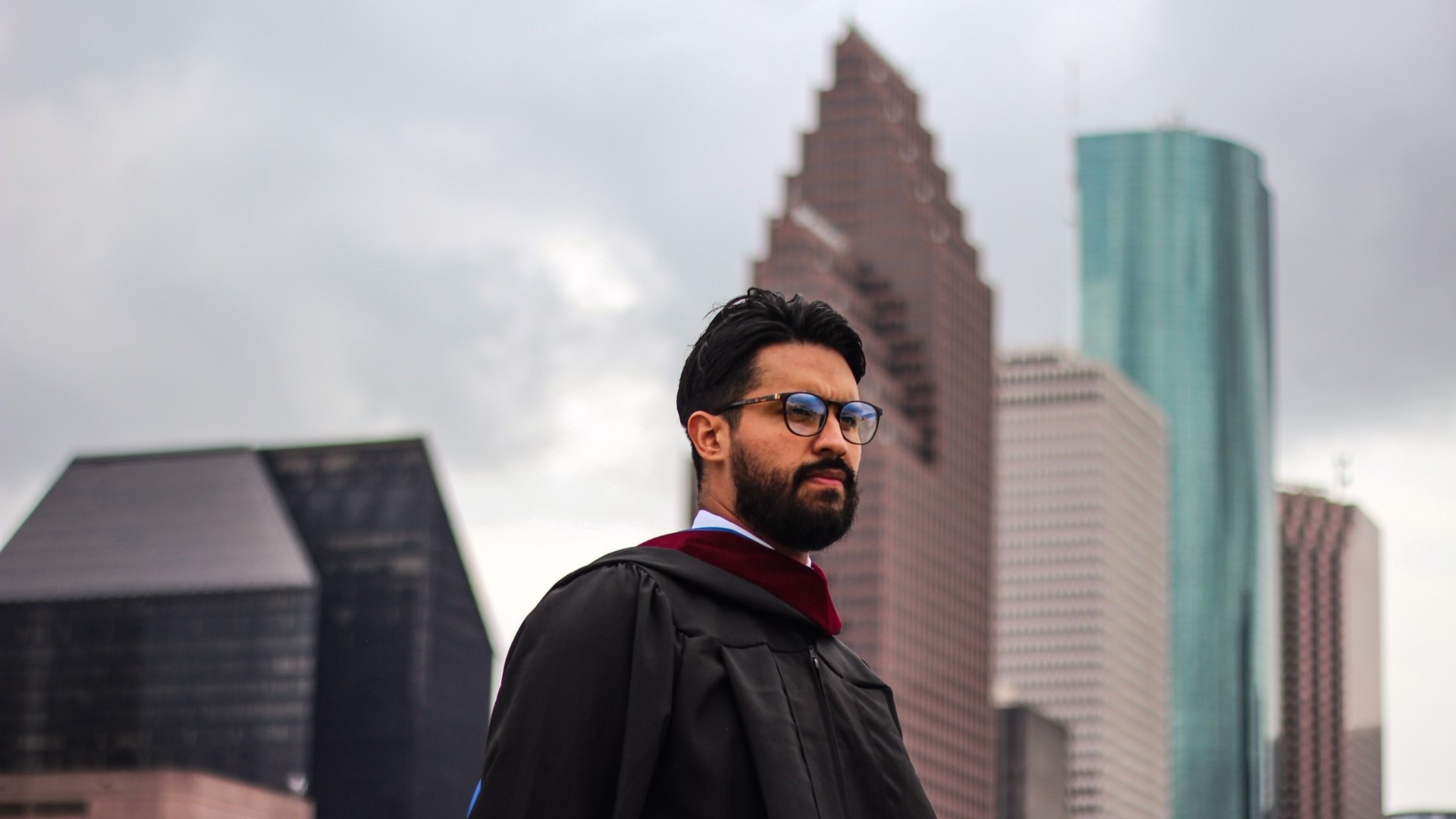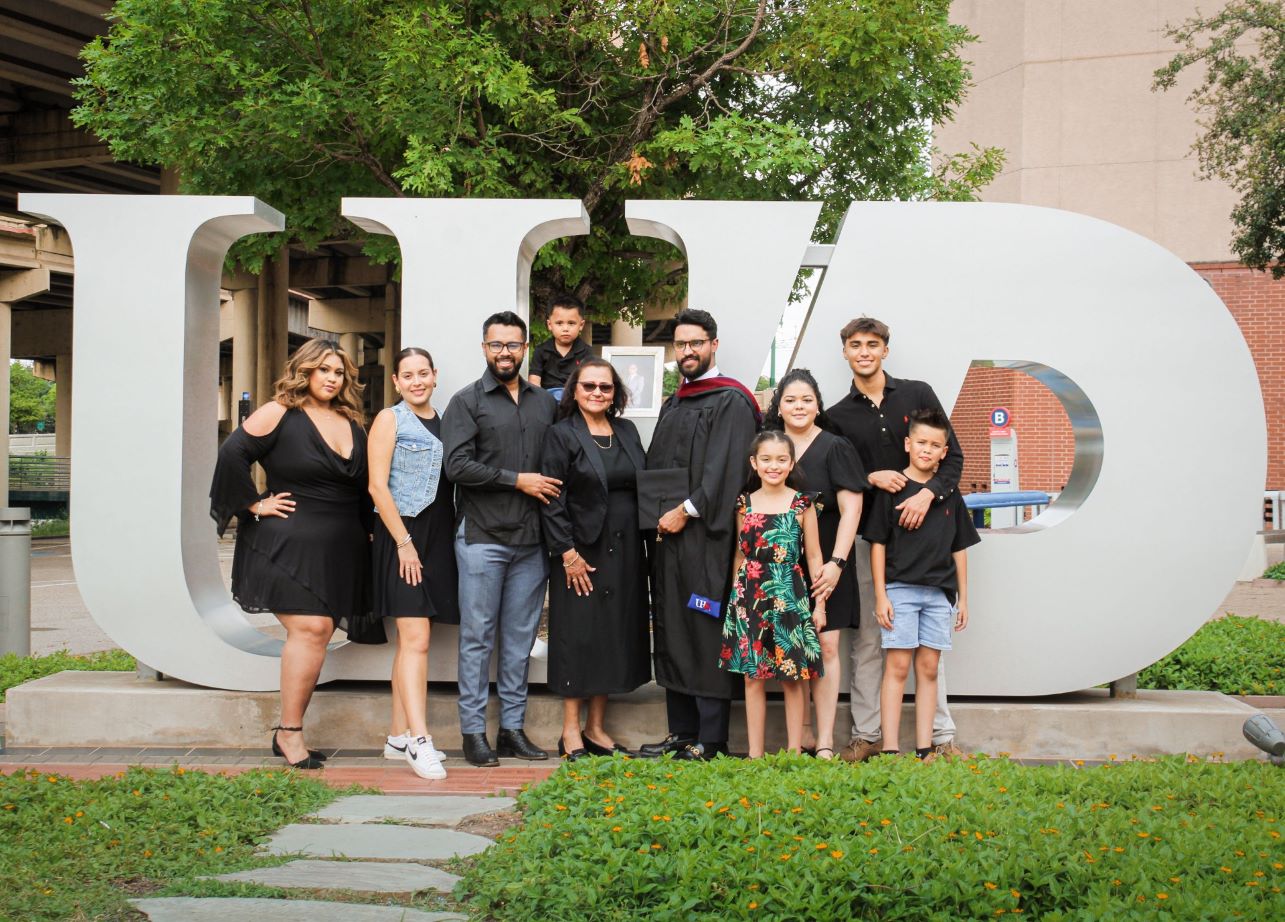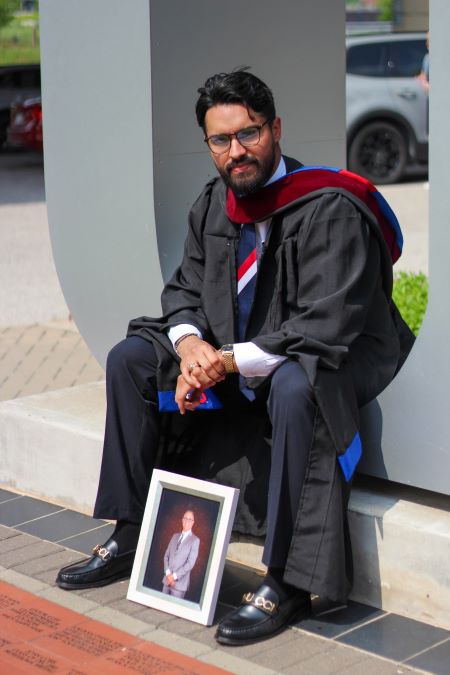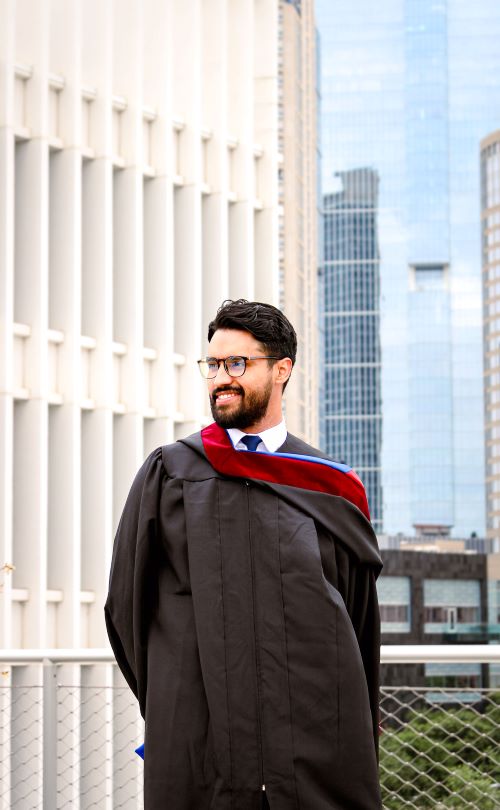
Alexis Mondragon: Educated, Enlightened, and Not Finished
UHD offers a myriad of master's degree programs to complement its most popular undergraduate majors. The following is the third in
a series of graduate student profiles we will run throughout the year, all with the
aim of shining a light on both our exceptional Gator graduate students and their respective
programs. The result, we hope, will be to provide the reader a brief glimpse into
life as a graduate student at UHD. As you will see, all UHD graduate programs are
designed to captivate, educate, and graduate well-qualified students.
We also have many offerings that are designed for working professionals.
If interested, please contact a graduate program representative using the information
below.
In Person Office Hours: 8 a.m. - 5 p.m.
Email Address: [email protected]
Phone: 713-221-8093
A little secret about writing these sort of profiles for a university: You are never, ever, ever, supposed to use the word I. The first-person pronoun is off-limits, and is eschewed in favor of a focus on the collective, a writing move that, the thinking goes, engenders a kind of objectivity. This is, of course, a fallacy, albeit one that can be comforting. After my conversation with Alexis Mondragon, a recent graduate of UHD's Master of Arts in Strategic Communications (MASC) program, I decided to do away with that stifling rule, as he is too engaging, too likeable to not write in a way that is completely and utterly personal.
So...here goes.
Have a conversation with Mondragon and you will find a man who is as enlightened as he is educated, a charismatic 33-year-old who speaks with the conviction of someone who is certain he will accomplish much, even if he isn't quite sure what that might be just yet. That said, as remarkable as those qualities are, they aren't what make him remarkable. That lies in how he sees himself.
"When I was a recruiter, I wanted to be the bridge between the student and the opportunity. When I was at Chick-fil-A, I wanted to be the bridge between chicken and the community. I think in everything that I do in terms of being the bridge for other people. I'm supposed to span the gap between the problem and the solution."

Of course, Mondragon is much more than that. He's a runner and a Lego enthusiast, someone whose wife describes as persistent, a trait that rang true after I learned that the son of immigrants who lost his father to COVID-19 during the pandemic once took 25 classes (!) in a year and half. He did this because he was, in his words, a late bloomer, as he didn't begin his undergraduate studies in earnest until he was 29.
After completing his Bachelor of Arts in Corporate Communications at UHD, Mondragon's life didn't go as planned: He bounced between a few jobs he didn't like, spent six weeks unemployed, and, eventually, felt miserable with where he was.
"I had no purpose, no direction. I had my degree and felt like that was the time I would ascend to new heights, and it just wasn't happening for me." So he thought, he waited. "I had considered grad school but had put it off," he said. "I had this fear, this thought that I couldn't do it."
That, combined with going through the many stages of grief, caused him to put it off a little longer. Typical of Mondragon, however, he persisted. "I realized there's never going to be a 'right time,' a 'right moment.' I knew that the longer I waited, the more I would regret not doing it sooner."
After that revelation, he reached out to Dr. Darius Benton, Associate Professor of Communication Studies and the MASC Program Director. Mondragon remembered having a good rapport with Dr. Benton as an undergraduate student, and after a few conversations about what UHD's program had to offer (Mondragon was considering UH's graduate communications program as well), he decided to apply.
 Once admitted, he approached his studies the same way he did as an undergraduate—that
is to say, he took on a lot of coursework. Thankfully, the program allows for this, as students can take more
or fewer courses in a given semester, depending on what their life outside of school
allows.
Once admitted, he approached his studies the same way he did as an undergraduate—that
is to say, he took on a lot of coursework. Thankfully, the program allows for this, as students can take more
or fewer courses in a given semester, depending on what their life outside of school
allows.
And while his time as a graduate student felt like a blur, Mondragon has fond memories of bonding with his fellow students. "They held me accountable when I needed that, and I was able to hold them accountable as well," he said. "I'm grateful for that, and for the friendships I still have to this day."
Not for nothing, he will also have a built-in network of other communications professionals as he leaves the program.
One of his most rewarding experiences was the chance to work directly with a non-profit in the community. For his project, he chose to work with Urban Enrichment Institute (UEI), a youth organization that provides essential services to vulnerable urban communities in an attempt to combat school dropouts, drug abuse, and gang violence.
Throughout his time working with UEI he realized that, like many non-profits, they had a need for funding. However, they were not diverse enough in their fundraising efforts, so he helped create a plan that will guide them toward a new goal of seeking and securing funding from myriad sources that support their mission.
Through a detailed analysis of UEI's social media platforms, he also brought the issue of stereotyping to their attention, a crucial issue given the population they serve. Consquently, he also helped craft a plan that will help UEI use more affirming language when referring to the young folks served by the program's services.
Near the end of our conversation, I had a question that I wanted to ask Alexis, but
I was nervous. I didn't want to offend or  hurt him.
hurt him.
I wanted to ask him what his father would have said, what he might think about where his son is now, having just completed a Master's degree. Alexis thought about it for a few moments, then repeated a saying his dad used to tell him: "It's nice to be important, but it's more important to be nice."
He went on to tell a story:
"When I think about my dad, I think about the advice he gave me. He always said, 'Hey, son, if you listen well enough, you'll know that everybody has a story to tell. There's always something to take from someone, regardless of their status.'"
He went on:
"Some of the best advice I've ever received, some of the best stories that I've ever heard, have come from people that are humble farmers, people who don't even have shoes on, people who are covered in dirt in El Salvador. I've learned a lot here at UHD for sure. But I learned a lot from those other people, too. Everyone has a story to tell."
And so...
Just as that story surely did at some point, just as all stories do, this story of Alexis Mondragon's UHD journey has come to an end. I can say that it has been an honor to tell it.
I would close by asking, hoping, for myself as much as for anyone reading this, that we follow Mondragon's example, just as he followed his father's.
Not sure what to do?
Be like Alexis. Be the bridge.
The Master of Arts in Strategic Communication is a 30-credit hour, 100% online program designed to equip students with skills in strategic communication, research, and technology, allowing them to effectively create messaging with diverse public audiences. The program has a special emphasis on community engagement. Students completing the degree program will demonstrate competency in the following areas of knowledge:
- Analyze and critique communication issues, concepts, and theories as they apply to community engagement
- Develop research analyzing emergent communication practices in local and global community engagement contexts
- Design tailored responses to community engagement issues by using appropriate technology
- Create robust community engagement strategies with stakeholders in groups and teams
